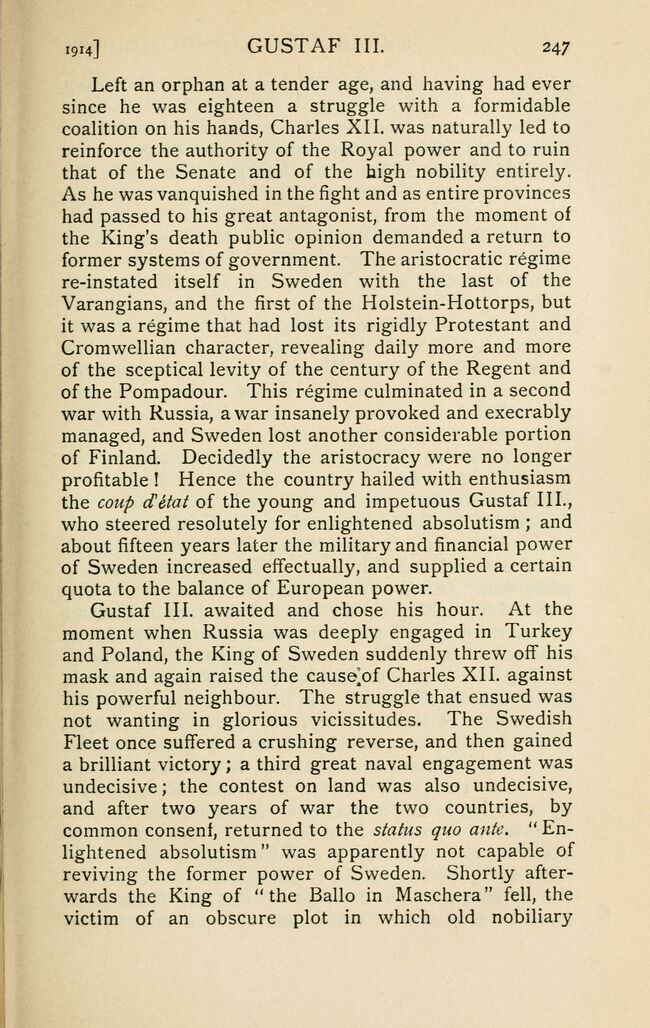
Full resolution (JPEG) - On this page / på denna sida - XV. Sweden in 1914

<< prev. page << föreg. sida << >> nästa sida >> next page >>
Below is the raw OCR text
from the above scanned image.
Do you see an error? Proofread the page now!
Här nedan syns maskintolkade texten från faksimilbilden ovan.
Ser du något fel? Korrekturläs sidan nu!
This page has been proofread at least once.
(diff)
(history)
Denna sida har korrekturlästs minst en gång.
(skillnad)
(historik)
Left an orphan at a tender age, and having had ever
since he was eighteen a struggle with a formidable
coalition on his hands, Charles XII. was naturally led to
reinforce the authority of the Royal power and to ruin
that of the Senate and of the high nobility entirely.
As he was vanquished in the fight and as entire provinces
had passed to his great antagonist, from the moment of
the King’s death public opinion demanded a return to
former systems of government. The aristocratic régime
re-instated itself in Sweden with the last of the
Varangians, and the first of the Holstein-Hottorps, but
it was a régime that had lost its rigidly Protestant and
Cromwellian character, revealing daily more and more
of the sceptical levity of the century of the Regent and
of the Pompadour. This régime culminated in a second
war with Russia, a war insanely provoked and execrably
managed, and Sweden lost another considerable portion
of Finland. Decidedly the aristocracy were no longer
profitable! Hence the country hailed with enthusiasm
the coup d’état of the young and impetuous Gustaf III.,
who steered resolutely for enlightened absolutism; and
about fifteen years later the military and financial power
of Sweden increased effectually, and supplied a certain
quota to the balance of European power.
Gustaf III. awaited and chose his hour. At the
moment when Russia was deeply engaged in Turkey
and Poland, the King of Sweden suddenly threw off his
mask and again raised the cause of Charles XII. against
his powerful neighbour. The struggle that ensued was
not wanting in glorious vicissitudes. The Swedish
Fleet once suffered a crushing reverse, and then gained
a brilliant victory; a third great naval engagement was
undecisive; the contest on land was also undecisive,
and after two years of war the two countries, by
common consenf, returned to the status quo ante.
“Enlightened absolutism” was apparently not capable of
reviving the former power of Sweden. Shortly
afterwards the King of “the Ballo in Maschera” fell, the
victim of an obscure plot in which old nobiliary
<< prev. page << föreg. sida << >> nästa sida >> next page >>